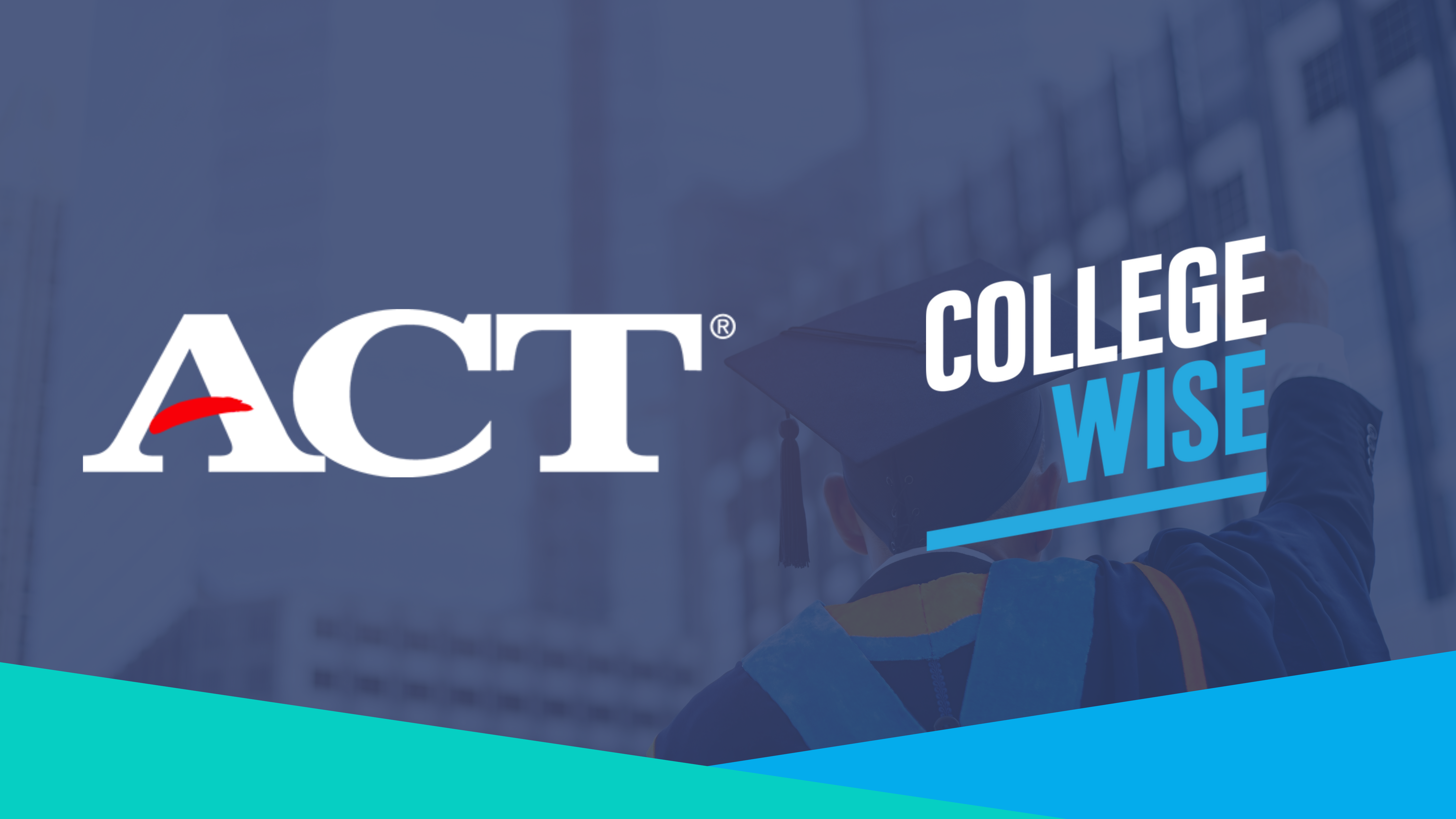There are some ACT and SAT testing myths out there and, like much in this world, at one time they might have been based in fact. But over the years, these myths have grown into wild untamed beasts, much like Khaleesi’s dragons. Fear no more—we’re here to help you sort through and separate truth from what Mr. Twain might call lies, damned lies, and statistics.
But be warned: we’re diving deep into the tests here, and we’ll probably give you more info than you need to know. In fact, one of the links below is to a 90-plus page document the ACT folks share, and another is a 150-page document put out by the College Board. We wanted you to know that we did the research, so you don’t have to.
Strap in, as we get into our Top Testing Myths.
1. MYTH: Certain schools only accept the SAT (or ACT)
This is false (well, 99.9999 % false). Here’s the fact: American colleges view the ACT and SAT as tests of equal value. There are some exceptions in that some schools require test scores and may prefer one test for scholarship purposes. The only one we know of is the Curtis School of Music, which, incidentally, lists the “Scholastic Aptitude Test” or “SAT I” as a requirement for a BA in music. This brings up another commonly misunderstood notion: that the letters SAT and ACT stand for something. They do not stand for anything—they're simply the names of the tests. In the past, the SAT had been called Scholastic Aptitude Test, then Scholastic Assessment Test among other names, and the ACT was the American College Test. Like references to The Tiger King, these names are obsolete.
2. MYTH: December (or May or September or some other month) is the easiest testing administration.
Each test administration is equally easy—or equally hard—depending on whether you’re a glass full/glass empty type. The College Board and ACT do something called “equating,” so that the scores from one testing administration date can be compared with those from another. Students, please take some free practice tests, compare results, and then take the test that best aligns with your schedule, your prep, and your health. Disclaimer: please only test if you feel comfortable and safe doing so, and if you're not putting your or someone else’s health at risk.
3. MYTH, with a caveat: Answer choice C is always the best answer if you have no idea.
The problem with this myth is that there is no letter C on half of the ACT questions (your options are F, G, H, J, and sometimes K), plus there is no letter C for the SAT student-produced responses. We tutors often tell students to pick a letter and stick with that letter as their safety choice when in doubt.
Also, we ran a mildly scientific study a couple of years ago where we found that whether you picked A, C, D, or F, it wasn’t significantly or statistically different in terms of scoring. So, here’s a more fruitful way to think about it: choose a column and fill a line of bubbles straight down that column when you need to start guessing. There is no penalty for wrong answers on either the ACT or the SAT, so guess away. Fun fact: the number “2” has appeared as a correct answer on at least one of the student-produced responses for almost every released SAT, so when in doubt on those grid-in questions, bubble in 2—and do make sure you bubble it in, not just write the number, so you get credit.
4. MYTH: If a student hasn't taken chemistry or physics, they won't be able to do the ACT science section.
I’m a former English teacher, and I LOVE the ACT science section. AP Physics? My nemesis. The ACT science section is viewed as a reading comprehension exercise. 90% of the questions have the answer in front of you in the given information consisting of texts, charts, and figures. For those few questions that do cover science content—like Punnett squares or basic circuitry—you either know them or you don’t. Put down an answer choice and continue moving on confidently through the test.
5. MYTH: The tests are exactly the same.
The ACT and SAT are both bubble tests that reward engaged readers, students with calculators, and those who have solid vocabulary knowledge. Test scores have also long been shown to correlate with income, since they reward kids who can afford test prep. Is that fair? Not at all, and that’s one of the many reasons why schools are going test-optional.
The biggest difference in the tests under standard conditions is the timing—the ACT moves much quicker—but the content tested overlaps significantly. If you’re a fast reader, you may prefer the ACT. If you like to take your time and ponder questions, the SAT reading section may suit you more. Take our free diagnostics to find out. Also, see myth #1: whichever test you end up taking doesn’t matter to virtually all American colleges.
6. MYTH: Just add 100 points to your PSAT score to see where you'd be on the SAT.
The SAT and PSAT are vertically aligned, so, your score on the PSAT is the score you would receive on that day if you were to have taken a full SAT.
7. (Somewhat of a) MYTH: Colleges know when you've received accommodations, like Extended Time, on your test administration.
Schools only know about accommodations when they are disclosed elsewhere in the student’s application. If you’re applying for a college’s learning center or special support program, you would be disclosing that some sort of accommodation is needed. Otherwise, there are laws that protect this information from being shared with admissions offices. That said, in recent news, the ACT has settled a class-action suit—although admitting no wrong-doing—that claimed the ACT was releasing private information regarding students and accommodations.
8. MYTH: You should begin preparing for the SAT or ACT in your freshman year of high school.
Please do not make test prep an extracurricular activity. Your ninth-grade year is for exploration, both academic and outside of school. Read good books. Watch engaging films. Take care of your family and community. Try a new sport. But don’t pick up the 1300-page SAT Study Guide until after 10th grade. Moreover, the math sections on both the ACT and SAT cover material through Algebra II with a peppering of trig/pre-calculus questions, so you should not plan to sit for an official ACT or SAT exam until you’ve taken the academic classes dealing with most of the math content.
9. MYTHs: I need a good score to get into college. And the related: if I get a good score, I'll get into an Ivy.
Did you know that most American colleges are test-optional for the class of 2021, meaning you do not even need to HAVE scores to apply? COVID has wreaked havoc on the typical college admissions deadlines and requirements, and the reverberations may be around for a few more years. Many colleges have pledged that test-optional really means test-optional, so that if you are NOT able to submit scores, it won’t be held against you.
The test-optional movement began years before COVID; in fact, around 1,000 schools were test-optional or test-flexible before the global pandemic. That said, there are certain schools and scholarship programs which do require scores, still, in the midst of a global pandemic. For some reason, state colleges in Florida are still holding to testing requirements this year.
For the class of 2022 and beyond, well, we wish we knew how the next nine months were going to play out, but we failed Professor Trelawney’s clairvoyancy class. Read more about what may happen here, and you’ll see that some schools may even be test-optional for the next few years and beyond!
You might think that getting a 1600 or a 36 guarantees entry into one of America’s highly selective colleges (HSCs as we fondly call them around here, which includes the Ivies, Duke, Stanford, and the like). Not true. Thousands of students every year earn perfect ACT and SAT scores, yet a few years ago, “Stanford was rejecting about 69 percent of applicants with perfect SAT scores....” There are 36,000 valedictorians in the US. So, numbers alone won’t get you into those colleges, since HSCs often only accept 4-8% of applicants given that there are only a few hundred spots in incoming freshman classes. Selective colleges employ a holistic review of student applications: they want to understand the student, seek their story, and know what type of community member the student will be at their institution (and possibly what type of alumnus they’ll be after graduation). You’re not a number, so you shouldn’t place all importance in the numbers.
About Us: With more than twenty years of experience, Collegewise counselors and tutors are at the forefront of the ever-evolving admissions landscape. Our work has always centered on you: the student. And just like we’ve always done, we look for ways for you to be your best self - whether it’s in the classroom, in your applications or in the right-fit college environment. Our range of tools include counseling, test prep, academic tutoring, and essay management, all with the support of our proprietary platform, leading to a 4x higher than average admissions rates.



.png?width=600&height=200&name=Blog%20CTAs%20(1).png)



